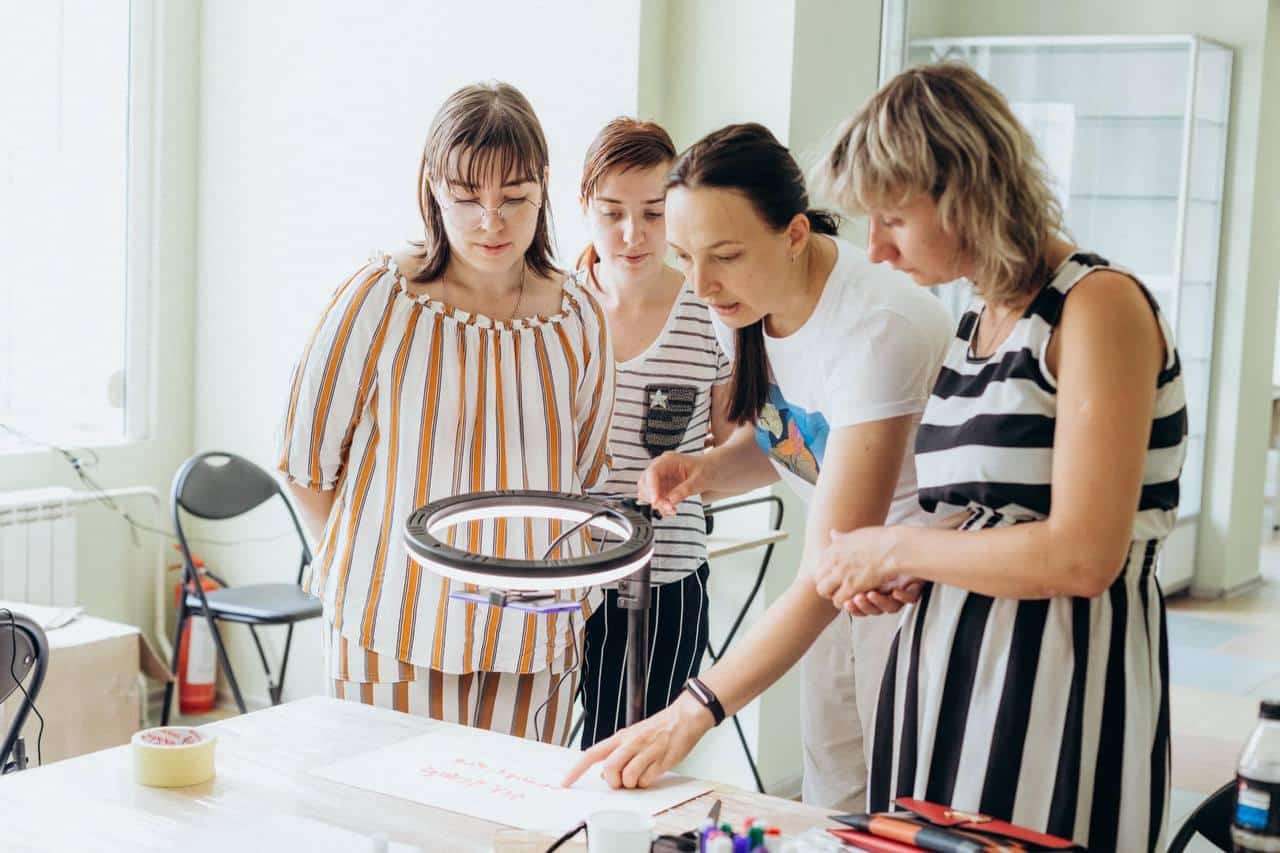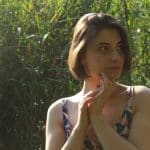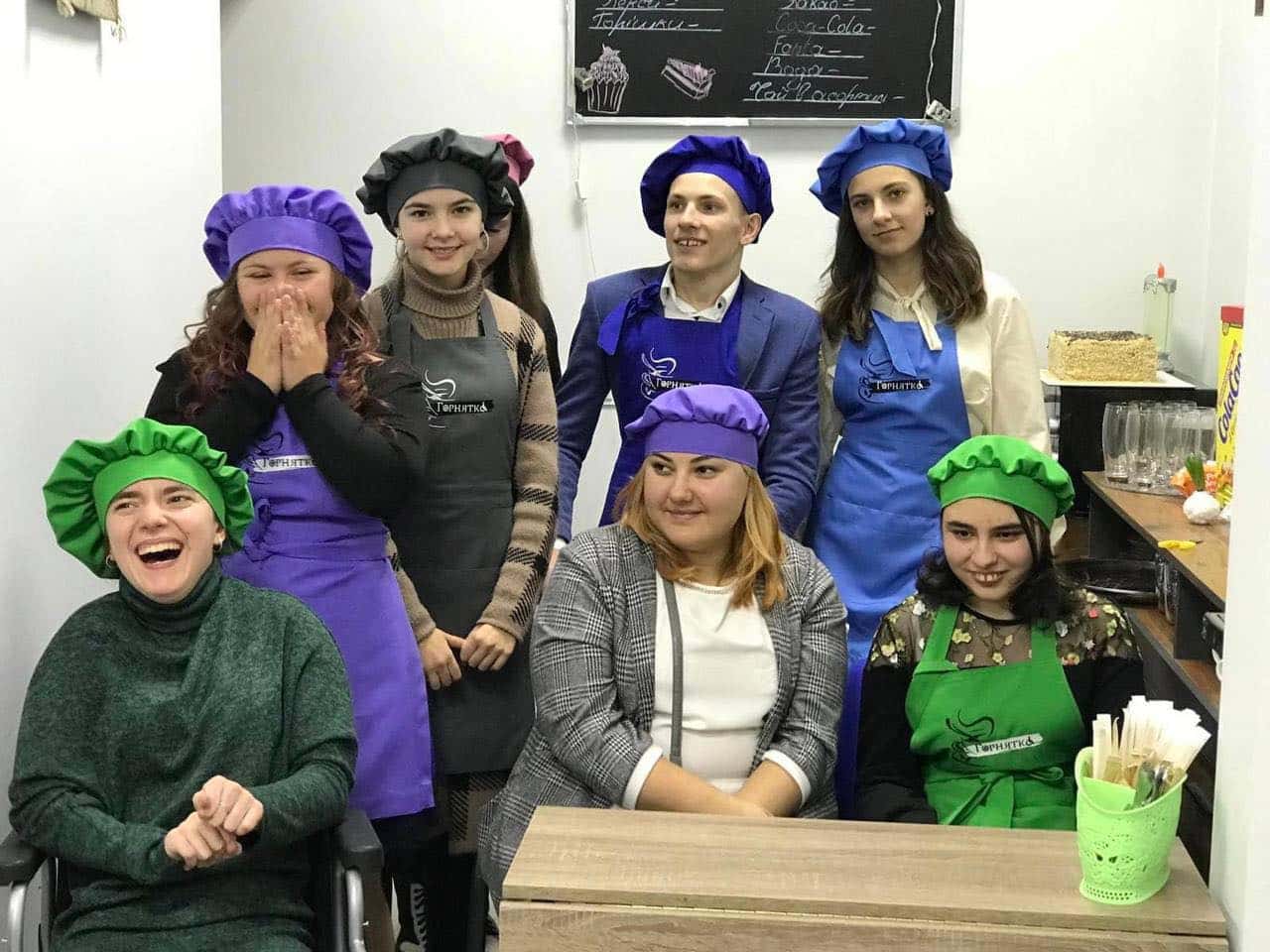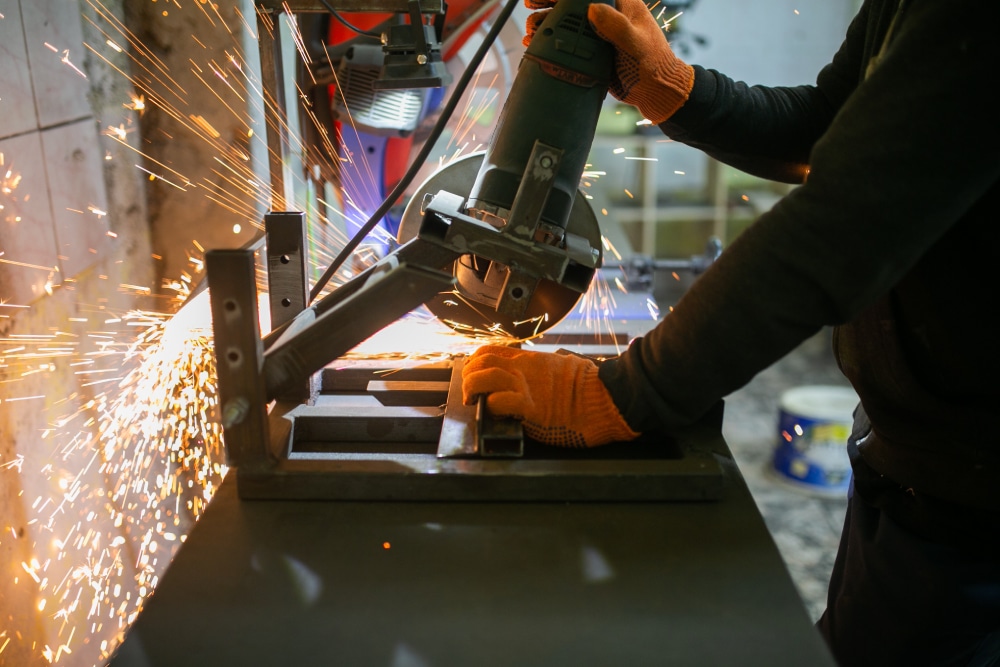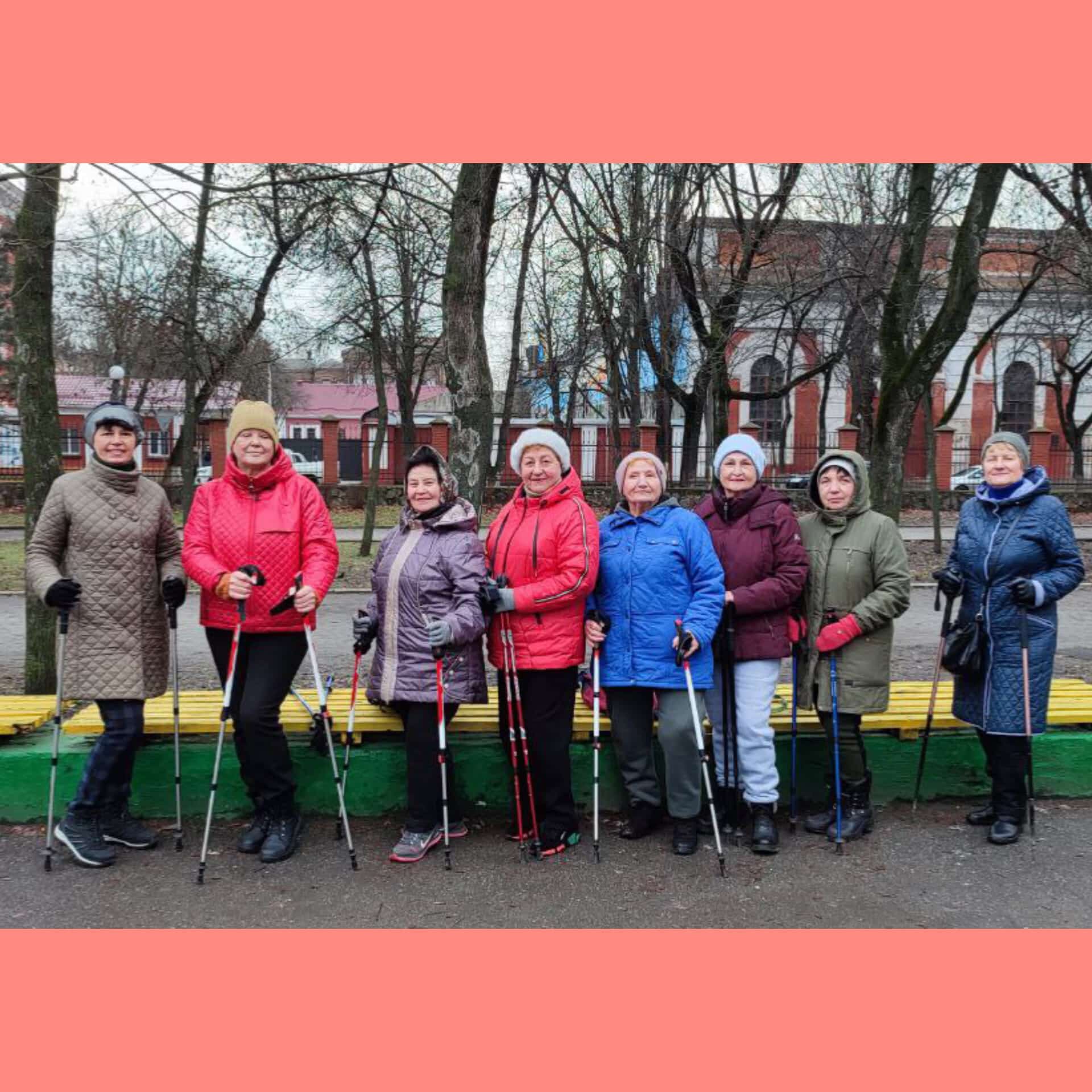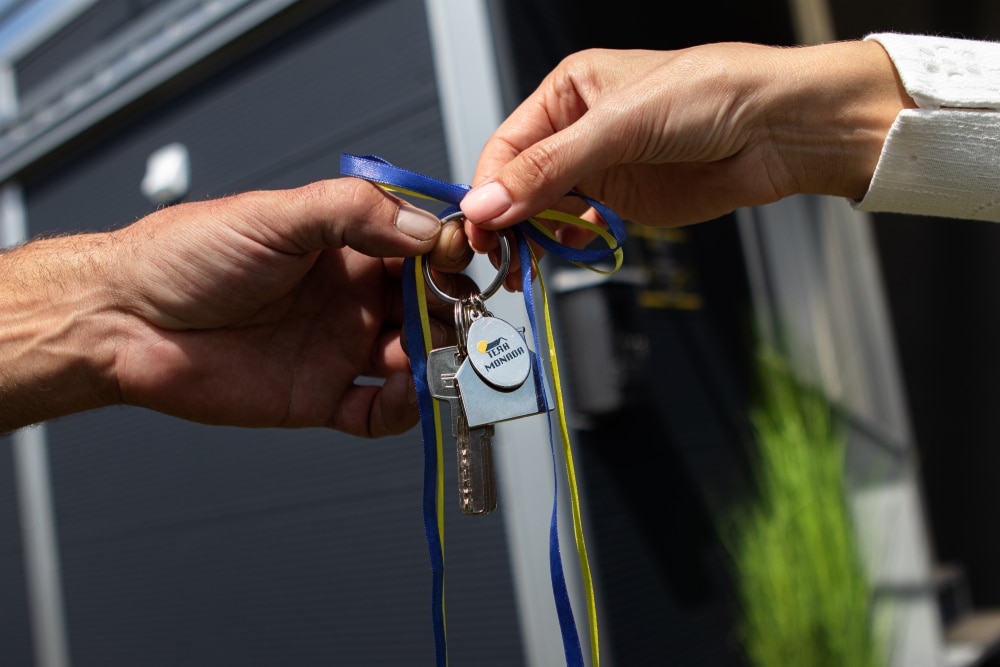In our childhood we would often make our own hiding place out of chairs, blankets and sheets. Inside there was a completely different world – safe, snug and full of dreams. A hub from Mariupol has taken on the task to recreate this atmosphere. The hub had been operating until the full-fledged invasion. Now it has found new premises and is continuing to offer the space of mutual aid and support for others.
We spoke to the co-founders of the hub ‚Khalabuda’ (the Ukrainian for ‚a tree house’ – translator’s note), Halyna Balabanova, about why Mariupol is a place of strength, how the premises were found and what help is being provided for the locals and internally displaced persons.
Being useful for the city
The Mariupol of late February and early March was the place of strength and togetherness. Local residents became closer to one another, helping each other with everything they could. Halyna recalls ‚Khalabuda‘ being visited not only by volunteers who had been active since 2014. The owners of macro businesses decided to share everything they had – fish and frozen chickens. Pensioners, apparently, had nothing to bring to the hub, so they came to wash the floor there, wanting to make themselves useful for their city.
‚Our task now is not to lose the things we have managed to achieve, which is our social capital and these people. Mariupol is first and foremost about its community and support‘, says Halyna.
‚Khalabuda’ was opened in 2015 by its leader, Dmytro Chycherya. A group of volunteers supported the idea of developing civil society in Mariupol. At the premises of a center for volunteers a new space for non-formal education was established. Afterwards, except for Mariupol the center began covering cities in South Ukraine, namely, Berdyansk and Prymorsk. Dmytro came up with the name of the hub, which has stuck with him since childhood.
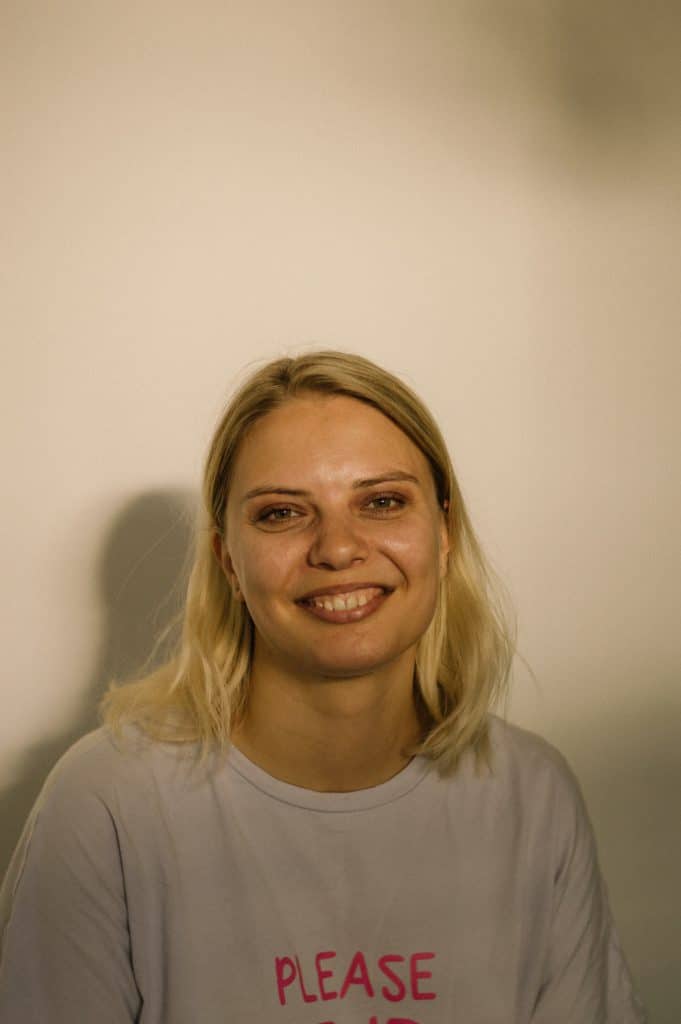
‚Khalabuda’ is your territory, the territory with your rules and dreams that you are free to implement. It is your island with your own rules, where you feel safe and comfortable. This is a space that we create for ourselves and the people that are so dear to us – friends and fellow thinkers’, says Halyna.
Halyna says that on February 24, 2022, the hub’s team went back to its roots working as a purely center for volunteers. ‚Khalabuda‘ offered food for the defenders of Mariupol and volunteers, also offering medicines, hygiene products and warm clothing to those in need. Overall, the center had a team of about 200 volunteers and residents of the city who stayed in Mariupol. About 25 thousand people received help from the hub.
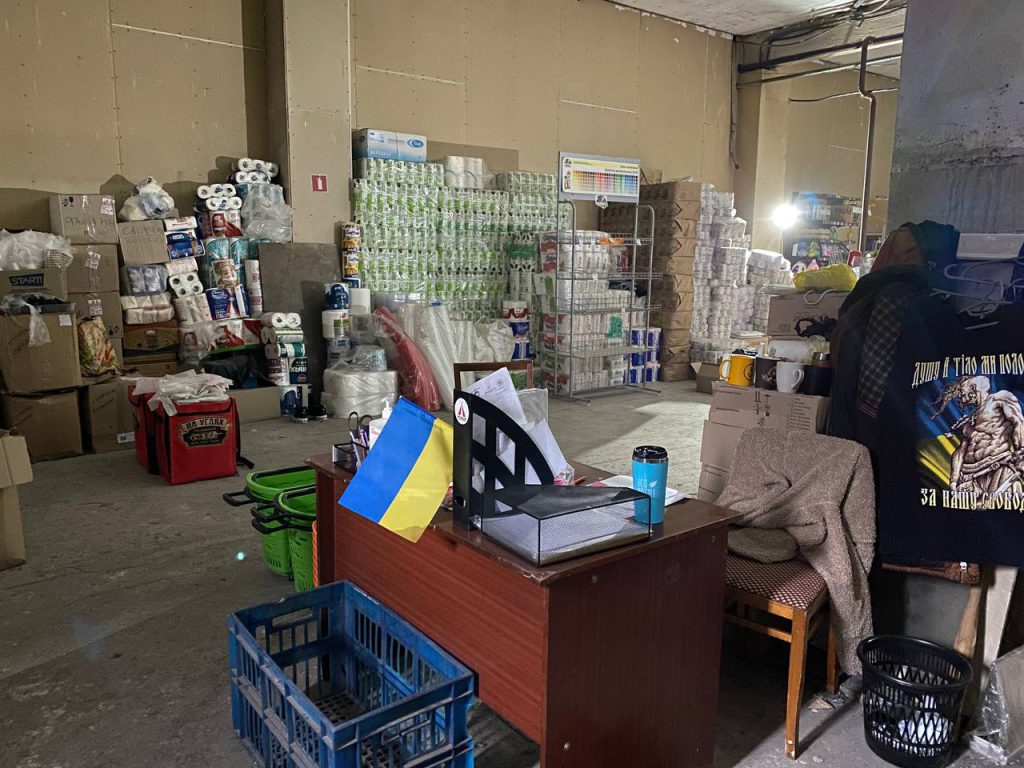
Some members of the team left the city with their children at the end of February for Zaporizhzhia (a city in South East Ukraine – translator’s note). Those who stayed were coordinating work in the city, helping the military and civilians. Eventually the line with Mariupol went dead but the rest of the team managed to flee the city by late April. Some were leaving Mariupol on foot. Not everyone was able to flee the city, though. According to Halyna, the fate of the founder, Dmytro, and a few other members of ‚Khalabuda‘ is still unknown.
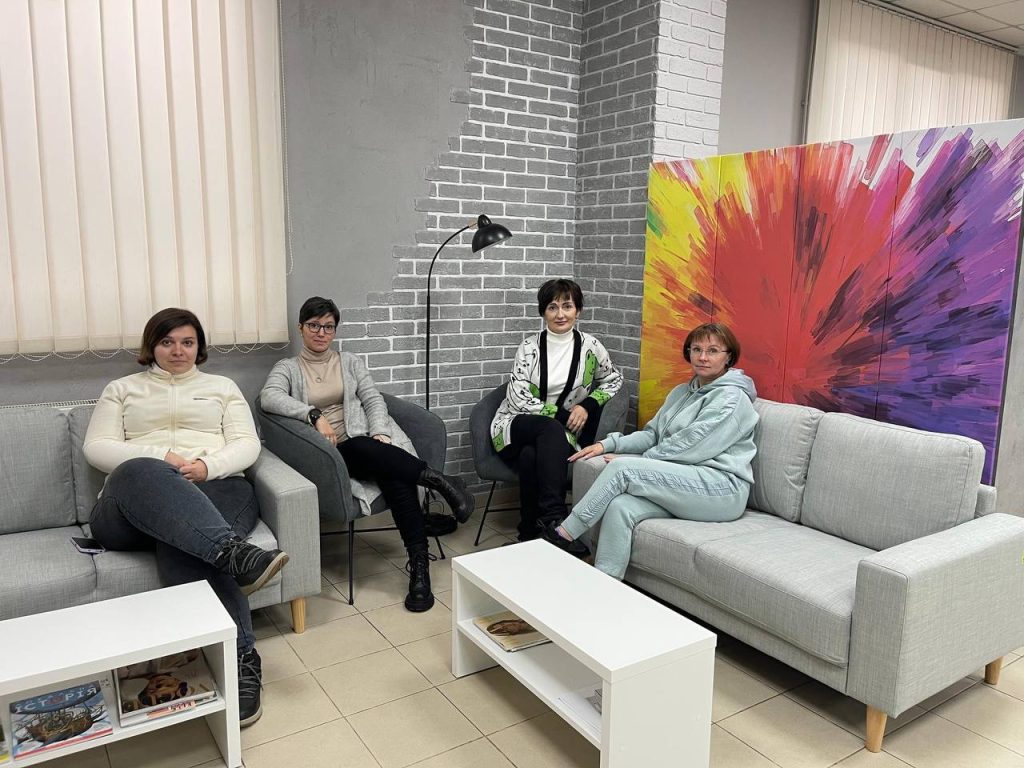
The building of the center in Mariupol is now destroyed. Russian special forces units have been there. However, the stocks of food products and clothing brought salvation for many people who stayed in the city. Halyna remembers people writing to her, saying that the food stored in the center helped people (who lived nearby and came to the hub in search of food) hold out. A man found dressing materials among pieces of debris, which helped him save his injured relatives. ‚Khalabuda‘ thus prolonged its own life, while helping others.
Ukrainian territorial defense, Siri and abandoning the city
The way out of the city was far from easy. Halyna began trying to flee Mariupol on March 16. However, already at that time she had to cross 20 Russian checkpoints to get to Zaporizhzhia. Her trip from Mariupol featured demolished bridges, sleeping in a car and taking care of Siri, Dmytro’s dog. At his behest, Halyna took his pet out of the city. The dog is now living with her.
A huge column of cars and people was moving from Mariupol, with people walking on foot, sometimes even pushing the cars to finally get out of the city that was already being bombarded by Russians. The trip to Zaporizhzhia took 24 hours. In the end, a small car with five people and two dogs on board managed to reach a safe place.
At the penultimate block post set up by Russians, the trunk of the car broke down, since it was too often opened and shut by Russians who were checking the car. For the first time since the trip began, Siri stopped barking only somewhere near the city of Vasylivka, where Ukrainian territorial defense units were stationed. It was only there that the dog calmed down and felt safe.
‚In terms of emotions, this experience was surreal. In the first days I thought everything would soon end and I would come back home even if the city would be destroyed. It was only after some time that I did realize that we were in for a long war, and I am still bidding farewell to Mariupol. My city now only lives in my memories and dreams. The city I now see in photos is a far cry from what it used to be. This is a different Mariupol. It has to be revived after we come back to the city’, says Halyna.
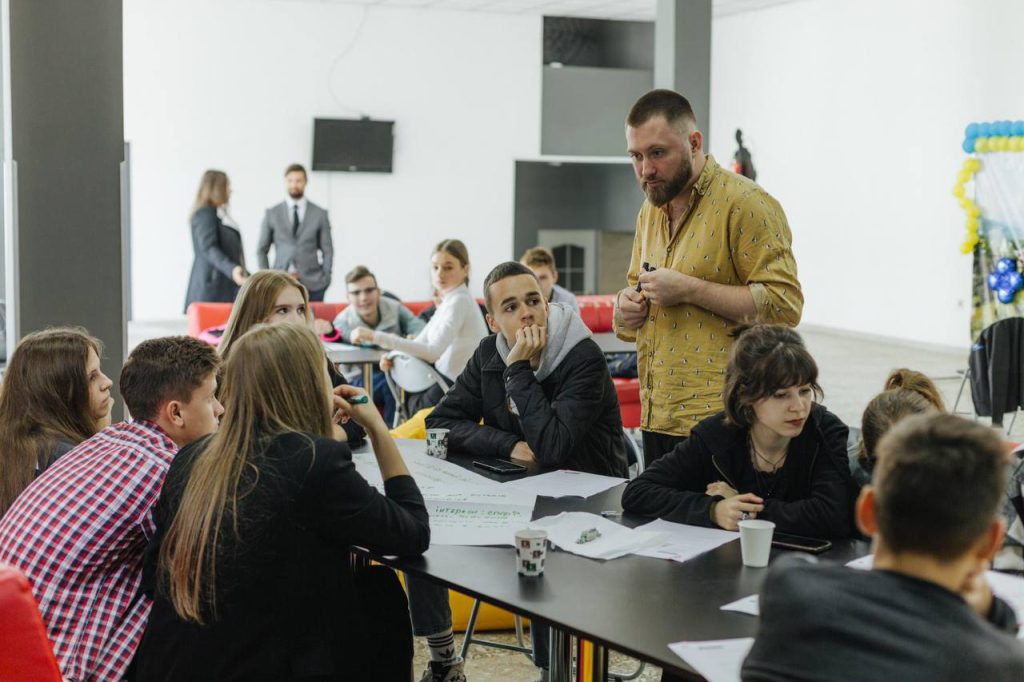
She was born and raised in Mariupol. Her childhood memories are bright and carefree. They are closely linked to this city by the sea.
‚Roasted gobies and the Azov shrimps that you fish by yourself, grannies on the streets selling sunflower seeds and sweets to the kids, music festivals and graffiti in a village close to Mariupol, the scent of the old tram near my house and the old city with merchants‘ houses, mosaics at local plants and other buildings… For me Mariupol consists of multiple layers and it is so delicious’, says Halyna, sharing her memories.
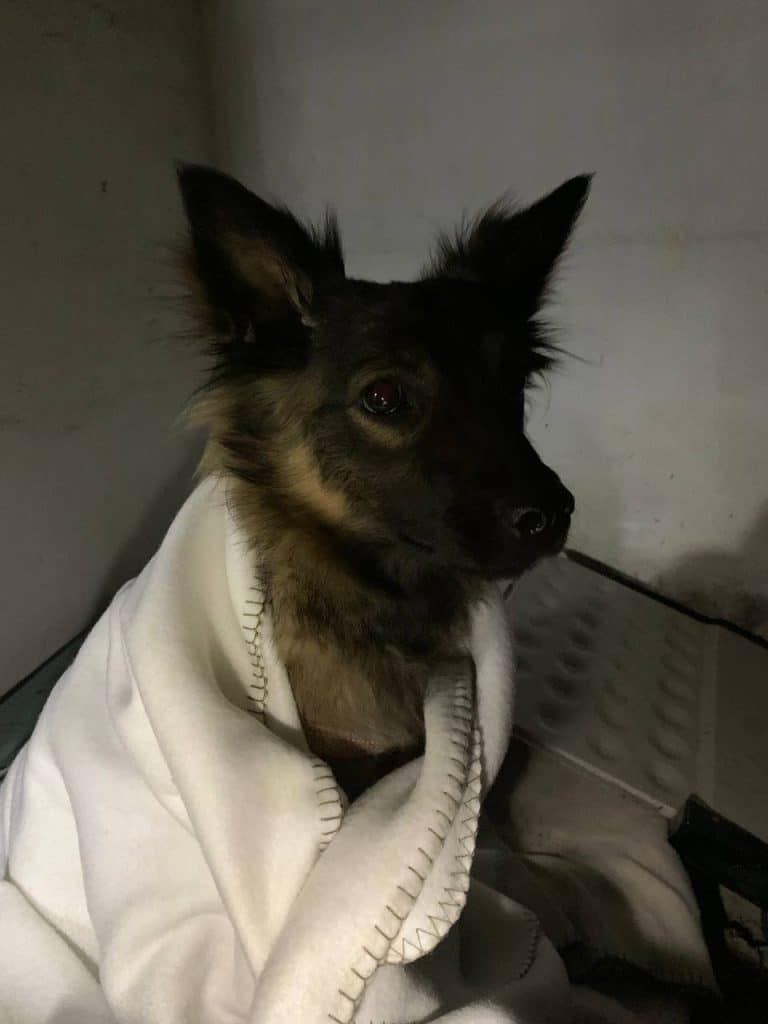
A new place and team
The team needed a break, so the work was resumed last summer in a separate building in Zaporizhzhia. They continued promoting non-formal education to help internally displaced persons, while also assisting them adapt mentally. Cultural events and art therapy sessions were also held. However, Zaporizhzhia became no longer safe for ‚Khalabuda‘. Halyna says that Russian shells began landing quite close to the premises, so the hub was forced to relocate once again.
A decision was made to settle in Cherkasy (a city in central Ukraine – translator’s note). Offline work is conducted here. Online aid is also being delivered. Halyna tells us a lot of residents of Mariupol, who left either the city or the country, join in these activities.
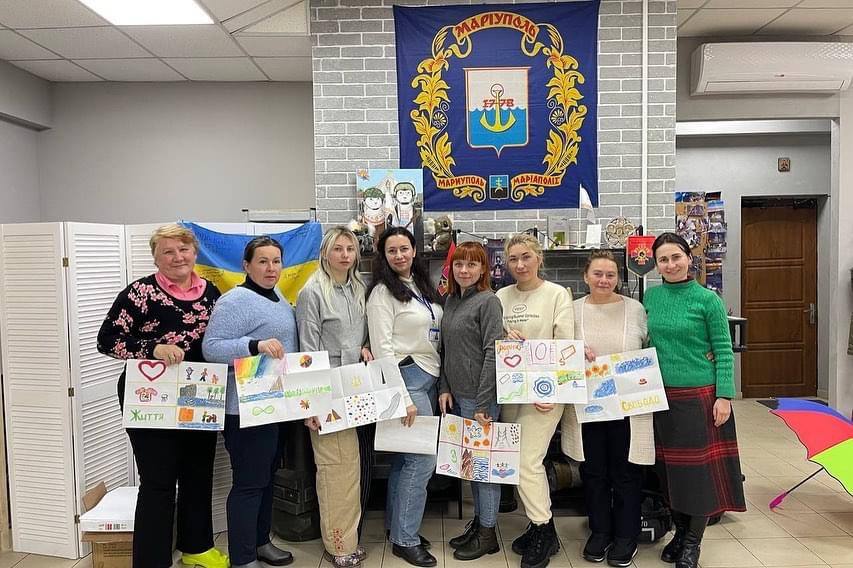
The team is mostly made up of people from Mariupol. Specialists who conduct classes are also local. Halyna says she managed to keep the team together and engage it in the activities in a new city.
‚Lyudmyla Chychera epitomizes the traditions and longevity of our history. She is Dmytro’s wife and one of the team leaders dealing with the development of Cherkasy. We have also got here managers, event managers, art therapists, coaches… A part of the team is supporting ‚Khalabuda‘ from abroad by maintaining social networks accounts, writing texts…’.
Some coaches come from Kyiv or Ivano-Frankivsk, or they join online. Halyna believes that ‚Khalabuda‘ is only beginning to get to know Cherkasy. She is convinced that new acquaintances and partnerships are yet to come.
‚Khalabuda’ has always been a place where visitors may not only be passive listeners or participants of training, but can also show their ambitions, hold events or conduct courses, come up with their own ideas‘, says Halyna.
Apart from Cherkasy, the hub is also intent on implementing projects in West Ukraine.
‚We carry on with our activities, doing an educational project in Lviv province. We are working with local activists and internally displaced youths. They are offered to get expert or law support regarding youth policies and public activities. We help them maintain their social networks accounts, deal with financial issues’, says Halyna.
For the time being the hub does not have an office in Lviv. Instead, it is working with partners, such as ‚Kyivsky Dialog‘ and ‚Molodvizh‘ (a running of two Ukrainian words, ‚youth‘ and the slang word for ‚getting together‘ – translator’s note). These organizations offer premises and projector for events. In smaller cities of the province, ‚Khalabuda‘ makes arrangements with local administrations and education departments.
Making soap, cartoons and speaking of painful problems
Every Monday on its pages on social networks ‚Khalabuda’ shares the events schedule for the upcoming week. It goes without saying that in view of the power outages some events may be rescheduled, e.g., computer classes. However, those master classes that do not require electricity are held anyway.
Different events are held at the hub, including business training, mobile photography workshops, mental resilience training, film screenings and exhibitions.
‚Participants like art therapy sessions the most, for example, animation workshops. We call them ‚digital art therapy‘. Kids make cartoons by themselves, creating collages and working with plasticine‘, says Halyna.
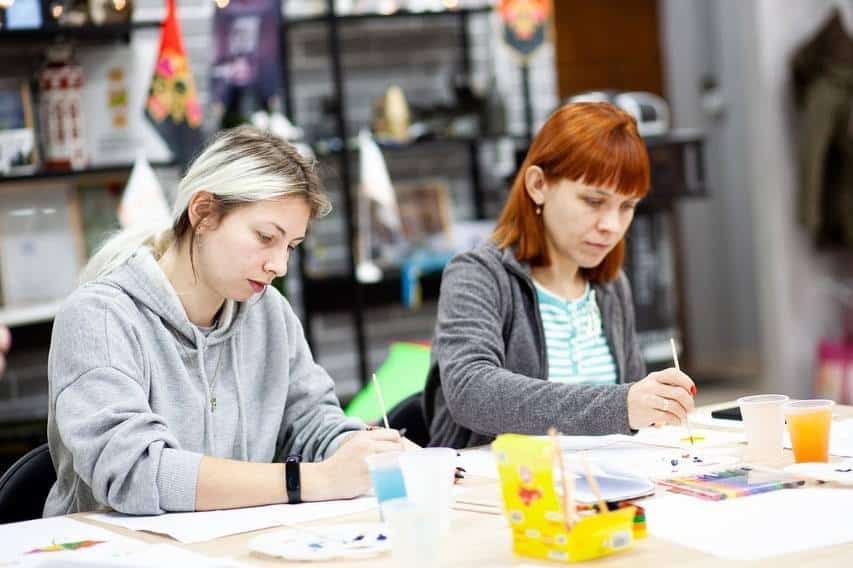
Workshops on making soap are also on offer. The advantage of these classes is that the entire family can participate, both children and adults. This makes it a nice leisure option. The process of making soap is supervised by an art therapist. Apart from learning to create handmade things, participants also offered training, so to speak. Art therapists speak about what stress is and how it can be handled. This offers the participants the opportunity to reach a new level of interaction, according to Halyna. ‚Khalabuda‘ also holds speaking club sessions, a cross between a supporting group and a speaking club.
‚You can simply talk to other people and share your inner feelings. This is important not only for displaced persons who are obviously experiencing stress, but also for the locals, who are often left out. We are all living amid stress now. Not only the ones who have lost their homes or native cities’, says Halyna.
‚Khalabuda’ has not set any age limits for participants. The most important thing is for a person to be ready to interact with others or to create things themselves. Halyna says that children under 5, for instance, make quite active participants.
The hub is currently receiving many requests from people willing to participate. Halyna says that ‚Khalabuda‘ is eager to give people the chance to create in the hub. However, it does not have its own power generator yet, so the operation of the hub depends on the schedule of power outages. Halyna remembers doing the same in Mariupol – people could come and work in the hub. They would then learn about events to be held and choose the ones in which they wanted to take part, a business course or the one on painting.
‚Khalabuda’ in every city
As for now the team finds it difficult to plan events far ahead but Halyna assures us she wants to develop the hub in Cherkasy and stay here for long.
‚Some time ago we were dreaming of ‚Khalabuda‘ or its representative office being opened in every city across Ukraine. This idea of ours gave us an incentive to scale up. We want to preserve the things we have achieved and keep working in several regions, while enlarging our team’, says Halyna.
‚Khalabuda’ is always open to new ideas and is developing fast. The hub will continue offering non-formal education activities. As long as there is a challenge of addressing psychological adaptation of people, this issue will also be taken care of.
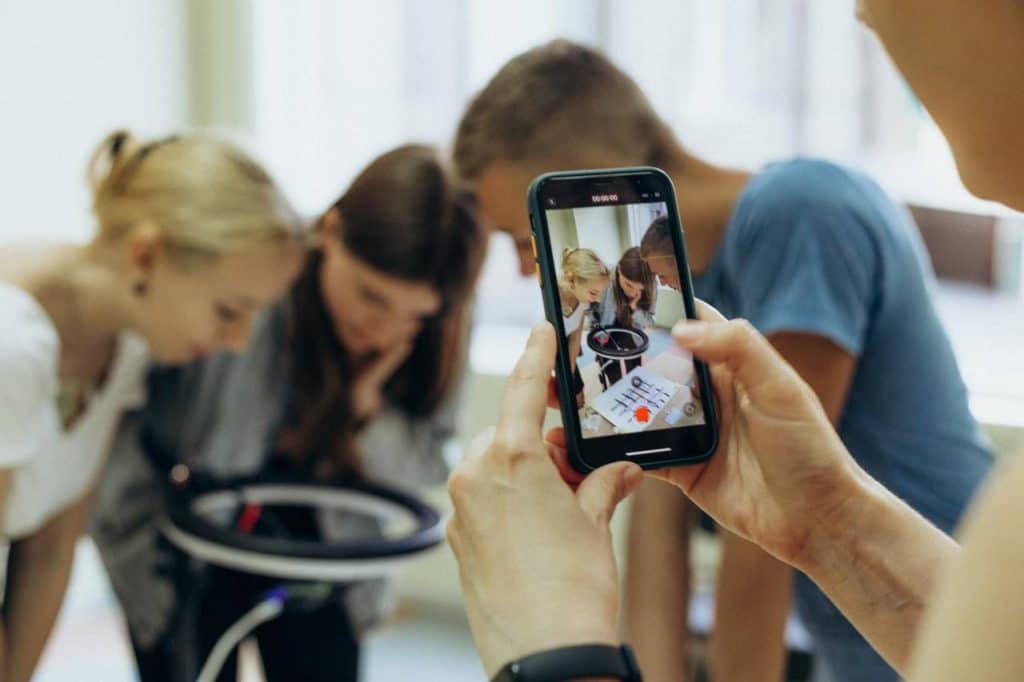
Halyna spoke to her team about what gives them strength to keep working since they stayed in Mariupol during shelling, helping others evacuate.
‚You just can’t sit idly by. Together it is much easier to do things, set common goals and reach them, however difficult and scary they would be. We all have our personal stories. Some of us have lost nearest and dearest, some do not know what happened to their loved ones, some have experienced the horror of war. But there is something that gives us strength to move on: our community, common goals and vision of the future that we strive for, the recovered city of Mariupol and our work that makes a difference’, says Halyna.

